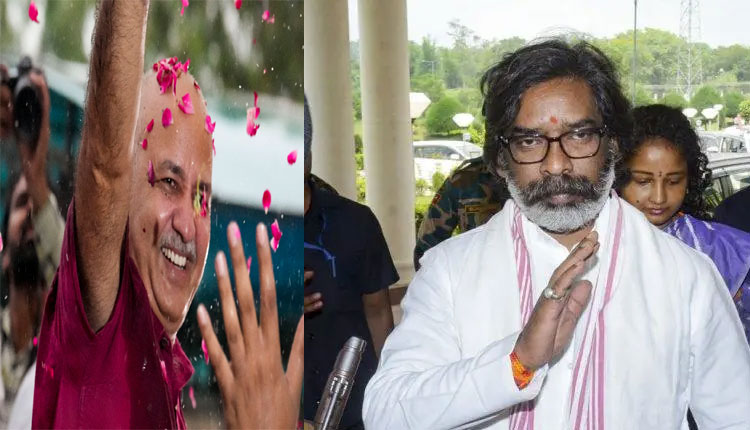New Delhi: In a significant legal and political development, the Supreme Court on Tuesday granted bail to former Delhi Deputy Chief Minister Manish Sisodia in a money laundering case connected to the alleged liquor scam. After spending 17 months behind bars in Tihar Jail, Sisodia was released on Friday, a move that is expected to revitalize the Aam Aadmi Party (AAP) as well as strengthen the broader opposition against the BJP and Prime Minister Narendra Modi’s government.
Sisodia’s release is seen as a major victory for AAP, with party leaders hailing the decision as a win for justice and a blow to what they describe as the Centre’s “dictatorship.” Rajya Sabha MP Sanjay Singh, who himself is out on bail, termed Sisodia’s release as a “slap on the face of the Centre’s dictatorship.” Gopal Rai, another AAP leader, called it a defeat for the BJP.
Upon his release, Sisodia credited his freedom to the Constitution written by Dr. B.R. Ambedkar and vowed to continue the fight against what he called the “dictatorship” in the country. He expressed confidence that AAP leader Arvind Kejriwal, who is currently in jail, would also be released soon. Sisodia emphasized the need for opposition unity, urging leaders to fight together against the current political regime.
The Supreme Court, while granting bail, made a noteworthy comment on the right to a speedy trial, which is enshrined under Article 21 of the Indian Constitution. The court noted that Sisodia had been in jail for nearly 17 months without trial, highlighting that this situation was a violation of his fundamental rights. This observation could have wider implications, especially for other opposition leaders who have been detained for extended periods.
Sisodia’s release is expected to inject new energy into AAP’s campaign for the upcoming Delhi Assembly elections. As a key figure in the party and the Delhi government, his return is likely to strengthen AAP’s position and strategy in the elections. Sisodia’s role in the party had been temporarily filled by Atishi, but his return is seen as a potential game-changer.
The broader political landscape is also affected by Sisodia’s release. The Supreme Court’s recent decisions, including granting bail to Jharkhand Chief Minister Hemant Soren and now Sisodia, have been seen as setbacks for central agencies like the Enforcement Directorate (ED) and the Central Bureau of Investigation (CBI). These rulings have bolstered the opposition’s narrative that the central government is using these agencies for political vendettas.
The relief granted to opposition leaders is not only a legal victory but also a morale boost ahead of upcoming elections. For parties like AAP and BRS, which have seen their leaders face legal challenges, these court decisions offer hope and momentum as they prepare to contest in key elections.
In conclusion, the Supreme Court’s ruling in favor of Manish Sisodia is more than just a legal reprieve—it is a significant political moment that could reshape the dynamics of the upcoming electoral battles, both in Delhi and across India.



Comments are closed.